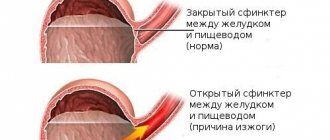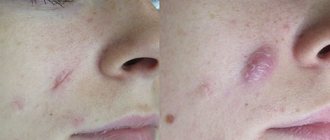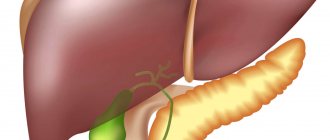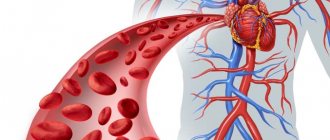Who is an imbecile - signs of the disease and methods of treatment with photos.
Who it
Home » Psychology and relationships » Know yourself »
Not many people know who an imbecile is. Moronism, imbecility and idiocy are three stages of mental retardation, mental retardation. Mental retardation manifests itself in childhood; the level of intelligence corresponding to a certain age is never achieved. In most cases, this is a consequence of genetic abnormalities; other causes of retardation:
- birth of a child prematurely;
- birth injuries;
- fetal intoxication;
- damage to the nervous system.
Description
With imbecility, children lag behind in physical development, deviations are noticeable externally. There may be signs of physical malformations: disturbances in the formation of the head, underdevelopment of the limbs, fingers, defects of the face, ears, eyes, hypogenitalism, etc. There may also be neurological symptoms such as paralysis, paresis.
Imbeciles understand those around them, they themselves can pronounce individual words and sometimes even short phrases. Speech consists only of verbs and nouns, is tongue-tied and grammatically incorrect[6]. As a rule, speech consists of very short standard phrases[7], and the vocabulary is limited to several dozen words[6] (sometimes up to 200-300 words[8]). Thinking is concrete and primitive, but consistent, distractions are inaccessible, the stock of information is extremely narrow, there is a sharp underdevelopment of attention, memory, and will. Imbeciles can form ideas, but the formation of concepts, as a higher stage of mental activity, is inaccessible to them or is severely difficult[7]. They have almost no imagination[5].
Those suffering from imbecility manage to instill basic self-care skills (dress themselves, take care of themselves, eat) and simple work skills, mainly through training in imitative actions[7]. With mild and moderate degrees of imbecility, patients can study in a auxiliary school, but they can be taught little: basic arithmetic (within a few units[6]), writing individual words, reading simple texts[7].
The emotions of imbeciles are more differentiated than those of idiots[6], they are attached to their family, and react adequately to praise or blame. Imbeciles lack initiative, are inert, very suggestible, easily get lost when the situation changes, need constant supervision and care, and in an unfavorable environment, behavior can be asocial. The interests of imbeciles are extremely primitive and are limited mainly to the satisfaction of physiological needs[7].
Sexual desire in those suffering from imbecility is usually reduced, but sometimes there is a painfully increased sexual desire along with a lack of restraining moral restrictions[5].
Based on their behavior, there are two groups of imbeciles: sluggish and apathetic, indifferent to everything except satisfying natural needs (torpid) and lively, active, restless (erectile) [7]. By character they are also divided into two groups: maliciously aggressive, stubborn and sociable, good-natured, friendly, flexible[7].
How to treat imbecility?
Treatment methods for imbeciles logically follow from the answer to the question, what is imbecility. Complete recovery of the patient is unattainable; all therapeutic interventions are aimed at reducing the severity of associated symptoms and maximizing socialization. Drug treatment of imbeciles is carried out in the following areas:
- Neurometabolics are drugs that nourish brain tissue.
- Dehydrants are pharmaceutical agents that reduce the number of seizures. For this purpose, diets are also used: salt-free and low-water.
- Tranquilizers for the correction of behavioral deviations.
- General restoratives, including tinctures of medicinal herbs.
- In some cases, antidepressants are indicated.
For a person suffering from a disease such as imbecility, proper care is very important to prevent the occurrence of infectious diseases; three times a day of hospital treatment is indicated throughout the year. Also, families raising imbeciles need to work with a psychologist to improve the adaptation of the ward.
International Classification of Diseases
ICD-10 divides imbecility into moderate and severe mental retardation. With an IQ of 35-49 and a mental age of 6-9 years, adults are diagnosed with moderate mental retardation (71.), and with an IQ of 20-34 and a mental age of 3-6 years - with severe mental retardation (72.). With severe mental retardation, it is possible to acquire only self-care skills and extremely poor speech development[9].
In the 1977 ICD-9, only moderate mental retardation with an IQ of 35-49 was defined as imbecility [10].
Therapy
The meaning of the word “imbecile” implies abnormalities in brain development. This condition cannot be completely eliminated. However, there are remedies to combat its symptoms. The following types of medications are recommended as treatment options:
- Medicines that improve brain activity.
- Drugs with a sedative effect, which are used for outbursts of anger.
- Medicines from the group of neuroleptics.
Children with this diagnosis require education in specialized educational institutions or at home according to special programs. They need classes with speech therapists to improve their speech skills.
Teachers should also pay attention to the development of social skills and mental processes.
Notes
- ↑ 1 2 Mendelevich V.D.
Psychiatric propaedeutics: A practical guide for doctors and students. — 2nd ed., revised. and additional — Moscow: Tekhlit LLP; "Medicine", 1997. - P. 444. - 496 p. — ISBN 5-900990-03-6. - N. M. Trofimova, S. P. Duvanova, N. B. Trofimova, T. F. Pushkina.
Fundamentals of special pedagogy and psychology. — Publishing house “Peter”. - P. 103-105. — ISBN 978-5-498-07834-2. - Large psychological dictionary. - OLMA Media Group, 2003. - P. 558. - ISBN 978-5-93878-086-6.
- Romanova E. A.
Diagnosis of diseases. Medical reference book. — Family Leisure Club. - P. 404. - ISBN 978-966-14-8977-5. - ↑ 1 2 3 Y. A. Stoimenov, M. Y. Stoimenova, P. Y. Koeva and others.
Psychiatric encyclopedic dictionary. - K.: MAUP, 2003. - P. 358. - 1200 p. — ISBN 966-608-306-X. - ↑ 1 2 3 4 N. M. Zharikov, L. G. Ursova, D. F. Khritinin.
Psychiatry: Textbook. - M.: Medicine, 1898. - P. 486-487. — 496 p. — ISBN 5-225-00278-1. - ↑ 1 2 3 4 5 6 7 O. V. Kerbikov, M. V. Korkina, R. A. Nadzharov, A. V. Snezhnevsky.
Psychiatry. — 2nd ed. - M.: Medicine, 1968. - P. 396-397. — 75,000 copies. - Guide to Psychiatry / Ed. A. V. Snezhnevsky. - M.: Medicine, 1983. - T. 2. - P. 464. - 544 p.
- Guide to Psychiatry / Ed. G. V. Morozova. - M.: Medicine, 1988. - T. 2. - P. 350. - 640 p. — ISBN 5-225-00236-6.
- World Health Organisation.
Manual of the International Statistical Classification of Diseases, Injuries, and Causes of Death. - Jeneva, 1977. - Vol. 1. - P. 212.
An excerpt characterizing Imbecility
“Please…” Dolokhov began, but couldn’t say right away... “Please,” he finished with an effort.
Pierre, barely holding back his sobs, ran to Dolokhov, and was about to cross the space separating the barriers when Dolokhov shouted: “to the barrier!” - and Pierre, realizing what was happening, stopped at his saber. Only 10 steps separated them. Dolokhov lowered his head to the snow, greedily bit the snow, raised his head again, corrected himself, tucked his legs and sat down, looking for a strong center of gravity. He swallowed cold snow and sucked it; his lips trembled, but still smiling; the eyes sparkled with the effort and malice of the last collected strength. He raised the pistol and began to take aim. “Sideways, cover yourself with a pistol,” said Nesvitsky. - Look out! – Unable to bear it, even Denisov shouted to his opponent. Pierre, with a meek smile of regret and repentance, helplessly spreading his legs and arms, stood straight in front of Dolokhov with his broad chest and looked at him sadly. Denisov, Rostov and Nesvitsky closed their eyes. At the same time, they heard a shot and Dolokhov’s angry cry. - Past! - Dolokhov shouted and lay helplessly face down on the snow. Pierre grabbed his head and, turning back, went into the forest, walking entirely in the snow and aloud pronouncing incomprehensible words: “Stupid... stupid!” Death... lies... - he repeated, wincing. Nesvitsky stopped him and took him home. Rostov and Denisov took the wounded Dolokhov. Dolokhov lay silently, with his eyes closed, in the sleigh and did not answer a word to the questions put to him; but, having entered Moscow, he suddenly woke up and, with difficulty raising his head, took Rostov, who was sitting next to him, by the hand. Rostov was struck by the completely changed and unexpectedly enthusiastically tender expression on Dolokhov’s face. - Well? How do you feel? - asked Rostov. - Bad! but that's not the point. My friend,” said Dolokhov in a broken voice, “where are we?” We are in Moscow, I know. I’m okay, but I killed her, killed her... She won’t stand it. She won’t bear it... - Who? - asked Rostov. - My mother. My mother, my angel, my adored angel, mother,” and Dolokhov began to cry, squeezing Rostov’s hand. When he calmed down somewhat, he explained to Rostov that he lived with his mother, and that if his mother saw him dying, she would not bear it. He begged Rostov to go to her and prepare her. Rostov went ahead to carry out the assignment, and to his great surprise he learned that Dolokhov, this brawler, the brute Dolokhov lived in Moscow with his old mother and hunchbacked sister, and was the most tender son and brother. Pierre had recently rarely seen his wife face to face. Both in St. Petersburg and Moscow, their house was constantly full of guests. The next night after the duel, he, as he often did, did not go to the bedroom, but remained in his huge, father’s office, the same one in which Count Bezukhy died. He lay down on the sofa and wanted to fall asleep in order to forget everything that happened to him, but he could not do it. Such a storm of feelings, thoughts, memories suddenly arose in his soul that he not only could not sleep, but could not sit still and had to jump up from the sofa and walk quickly around the room. Then he imagined her at first after her marriage, with open shoulders and a tired, passionate look, and immediately next to her he imagined the beautiful, insolent and firmly mocking face of Dolokhov, as it had been at dinner, and the same face of Dolokhov, pale, trembling and suffering as it was when he turned and fell into the snow. “What happened? – he asked himself. “I killed my lover, yes, I killed my wife’s lover.” Yes, it was. From what? How did I get to this point? “Because you married her,” answered an inner voice. “But what am I to blame for? - he asked. “The fact is that you married without loving her, that you deceived both yourself and her,” and he vividly imagined that minute after dinner at Prince Vasily’s when he said these words that never escaped him: “Je vous aime.” [I love you.] Everything from this! I felt then, he thought, I felt then that it was not that I had no right to it. And so it happened.” He remembered the honeymoon, and blushed at the memory. Particularly vivid, offensive and shameful for him was the memory of how one day, shortly after his marriage, at 12 noon, in a silk robe, he came from the bedroom to the office, and in the office he found the chief manager, who bowed respectfully and looked at Pierre's face, on his robe, and smiled slightly, as if expressing with this smile respectful sympathy for the happiness of his principal.
It might be useful to read:
- Amitriptyline tablets, indications for use, side effects, reviews, analogues;
- Amitriptyline injections, tablets: instructions, price, reviews and side effects;
- Amitriptyline Pharmland: instructions for use;
- How and why the drug digoxin in tablets and ampoules is taken - composition, contraindications, analogues and price;
- Instructions for use of acyclovir ointments and tablets Acyclovir is active against;
- The drug Ultracain: instructions for use, description;
- Ranitidine tablets: instructions for use Ranitidine dosage for children;
- Coding of acute pharyngitis in ICD;
Causes and symptoms of imbecility
The causes of this disease often come down to congenital factors and poor genetics: Down syndrome, microcephaly, infectious diseases suffered during pregnancy, sexually transmitted diseases, intrauterine damage to the fetus, trauma during childbirth.
Those suffering from the disorder have insufficiently developed motor skills, all movements are rough, angular, and their coordination is poor. It is difficult for them to perform precise games and actions that require fine motor skills. The gait, accordingly, is awkward, stiff, and there is hunching. The imbecile's face is devoid of facial expressions. He usually wears a casual, stupid expression, and his eyes blink relatively rarely.
Most patients have very visible external congenital signs of this disorder: earlobes attached to the skin, abnormal structure of the skull, especially its facial part. They are characterized by focal nervous symptoms.
It is difficult for imbeciles to master the rules of hygiene, but they show extraordinary enthusiasm in tasks that are feasible for them, are proud of achievements and successes, and show indignation or joy for various reasons.
At the same time, it is difficult for them to switch to other activities, to get comfortable in a new place, they show extreme lack of independence. The causes and symptoms of imbecility are quite vivid and pronounced, which makes it possible to distinguish this disorder from other degrees of mental retardation.
Characteristics of the disease
The main indicator of whether a patient has some degree of mental retardation is a violation of the cognitive abilities of the brain, which include thinking, memory, speech, intelligence, generalization and abstract thinking.
Imbecility is a stop in a person’s mental development at approximately the level of a six-year-old child.
His social circle is limited to his family, close friends, or other small group of people.
People who have been diagnosed with this condition perceive auditory information poorly and slowly, and practically do not use speech as a means of communication. The child’s speech apparatus is poorly developed, but nevertheless allows him to express simple thoughts, his own opinion or desires.
Mentally retarded individuals are easily suggestible, sloppy and have an increased appetite, bordering on gluttony. Patients suffering from imbecility practically cannot master even basic self-care skills. They require assistance from outsiders in meeting natural biological needs throughout their lives.
Imbecility does not prevent school attendance, but sick children, as a rule, can only learn basic information: counting, reading and writing. However, this stage of mental retardation is characterized by normal physical activity and some signs of social adaptation. Children can make connections and communicate with people around them.
Symptoms
Outwardly, imbecility can manifest itself in special physical abnormalities. The latter can be obvious or almost invisible. The severity of the defect can determine the stage of mental retardation. Babies may have an overly large or small skull, breathing problems, or congenital heart defects. As a rule, such children often suffer from infectious diseases and their digestive system functions poorly.
Most often, the first concerns arise among parents after their child exhibits delays in the development of speech and sitting skills. Sometimes disorders manifest themselves in other ways. At an earlier age, imbecility may be characterized by a too weak sucking reflex, a very quiet or, conversely, shrill cry of the baby.
In the future, children suffering from imbecility retain abnormal weight deviations and do not acquire social skills and physical characteristics: hooting, laughing, smiling, facial expressions.
The symptoms described above persist and continue to develop throughout the rest of life. A child’s retardation immediately becomes noticeable in kindergarten or school, especially if the teacher has sufficient experience. A person suffering from imbecility cannot adequately fit into a peer group, participate in joint activities, or concentrate on completing a particular task.
Causes and symptoms of imbecility
Imbecility manifests itself in specific symptoms that are pronounced. The reasons for its occurrence are also varied. These may be pathologies of the germ cells of the parents that are involved in fertilization, as well as abnormal development of the fetus during pregnancy, or various infectious or traumatic brain injuries during childbirth or in the first years of life.
Thus, the causes of imbecility are:
- Genetic mutations.
- Mature age of parents (after 40 years).
- Metabolic pathologies: phenylketonuria, diabetes mellitus, Gaucher disease, etc.
- Hormonal disorders that led to overripening of germ cells.
- Chronic severe illnesses of the mother.
- Insufficient maternal nutrition during pregnancy.
- Ionizing radiation.
- Smoking or alcoholism during pregnancy.
- Ingestion of poisons, heavy metals, chemicals and pesticides into the body of a pregnant woman.
- Drug use or abuse of medications.
- Incompatibility of Rh factors of mother and child.
- Chronic stress and nervous overstrain.
- Injuries during childbirth.
- Infectious diseases of the mother during pregnancy (ARVI or infectious diseases of the reproductive system).
- Excessive stress.
- Difficulties during childbirth.
- Poor nutrition of the baby, lack of certain elements.
- Brain injury in a child.
- Hydro- and microcephaly.
- Cerebral circulation disorder in a child.
- Unfavorable environment in which the child is located: violence against him, alcoholism or drug addiction of parents, dementia of parents, inhumane living conditions, etc.
These factors lead to varying degrees of development of imbecility. Symptoms vary, sometimes less, sometimes more.
- Lack of generalized and abstract thinking.
- Opportunity to learn basic skills, but with constant care.
- Violation of logical and mechanical memory.
- Distraction of attention.
- Primitive speech, consisting of subjects and predicates, without the use of secondary members.
- Catching the intonation, gestures and facial expressions of the speaker, but without understanding the meaning of what was said.
- Easily distractible, lack of concentration.
- Limited vocabulary (about a few hundred words).
- Small amount of memory.
- Primitive speech, incorrect pronunciation of some words, lack of ability to construct a complex sentence.
- Long-term memorization, distortion of memories.
- Egocentrism.
- Small stock of knowledge.
- Suggestibility with low criticality of understanding information.
- Lack of understanding of abstract concepts.
- Repeating words and phrases after others.
- Lack of inclination to analyze, draw conclusions, and compare.
- Inappropriate sexual behavior.
- Lack of proper self-care due to sloppiness, unsystematicism, carelessness.
- Limited interests.
- Moral immaturity, which manifests itself in a lack of empathy, sense of duty, conscientiousness, and sympathy.
At the physiological level, the child begins to crawl, walk, and talk late. He is unsteady and his gait is unsteady. Fine motor skills practically do not develop, movements are angular and uncoordinated. The facial expression is frozen, dull. Various deviations are noted:
- Protruding ears.
- Malocclusion.
- Grown lobes.
- Irregular oval of the skull.
- Rough structure of the front part.
Imbecility causes and symptoms
The causes of imbecility lie in hereditary factors (microcephaly, Down syndrome, intrauterine damage to the fetus, infectious diseases suffered by the mother, rubella, toxoplasmosis, syphilis), immunological incompatibility of the blood of the fetus and mother, various harmful effects on the fetus, and birth injuries.
In those suffering from imbecility, motor skills are poorly developed, movements are angular and uncoordinated. Small, precise, manual motor acts are inaccessible to them. Their gait is often stiff, awkward, and hunched over.
The face of imbeciles has no facial expression, it is frozen, dull, and the blinking of the eyes is very rare. Many patients have pronounced congenital stigmas (protruding ears, attached lobes, defective bite, rough structure of the facial skull, microcephalic or hydrocephalic skull). Those suffering from imbecility have focal neurological symptoms. It is difficult for such patients to master the skills of neatness, but they happily take on feasible work, are proud of their successes and express displeasure and anger if someone litters in the place they have cleaned. At the same time, patients exhibit poor switchability and extreme lack of independence.











